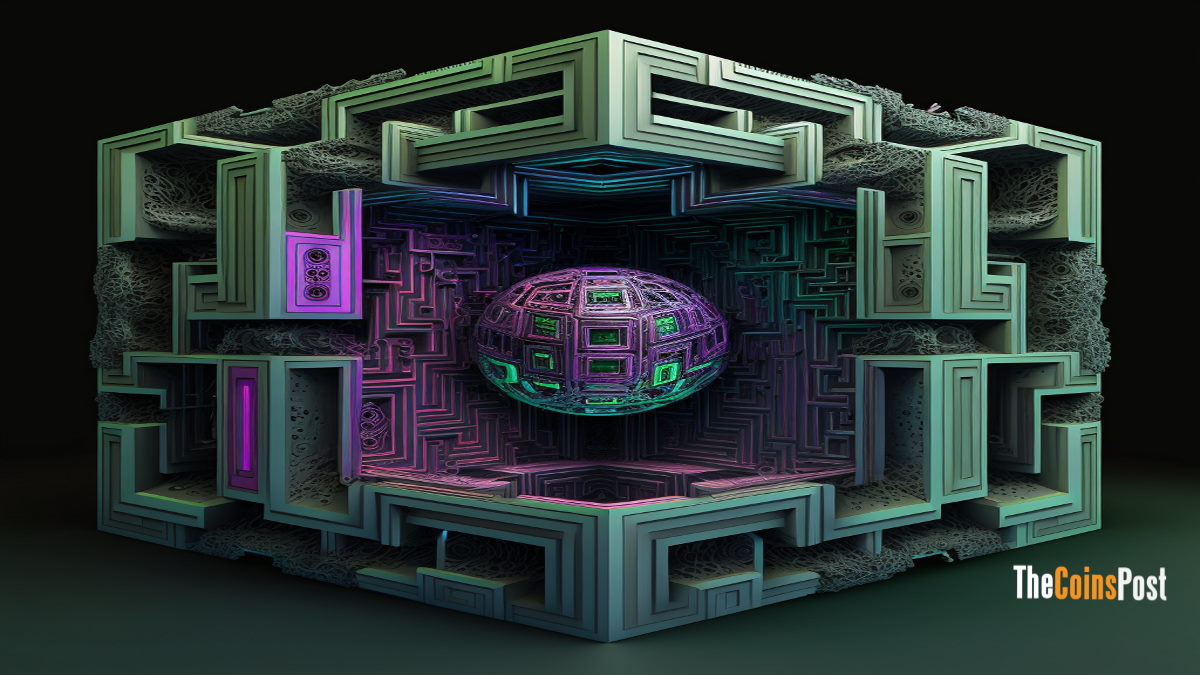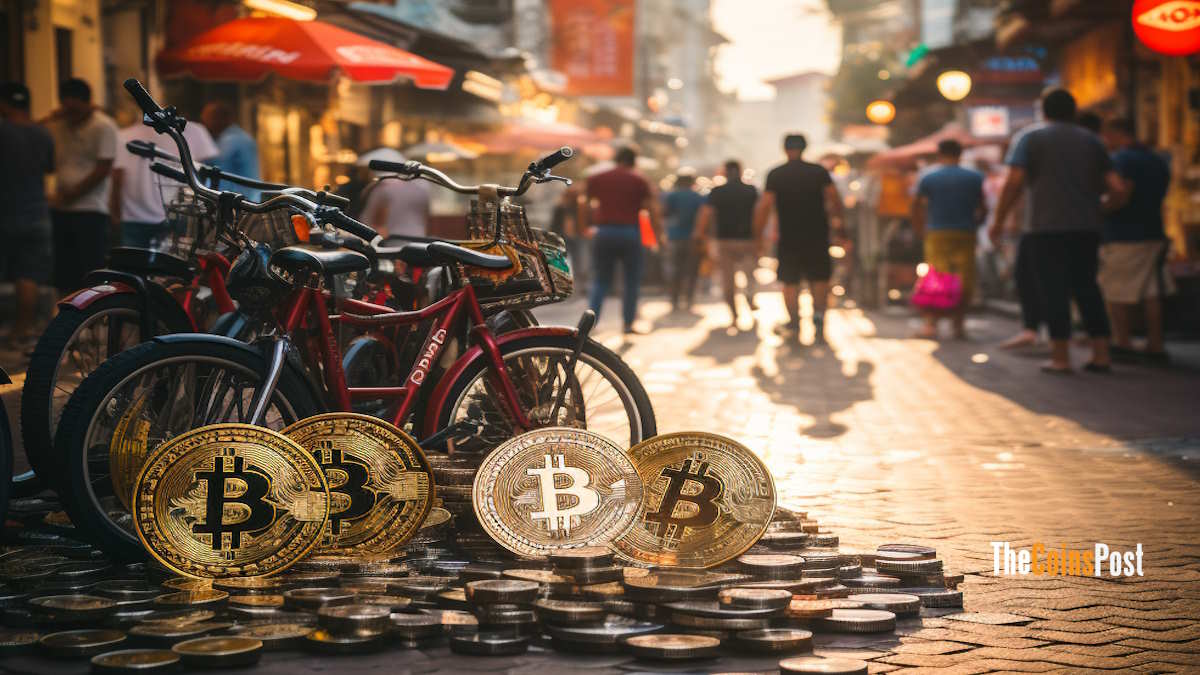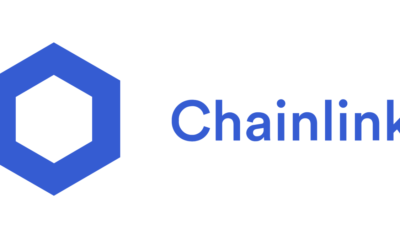Altcoins
Decentralized Cloud Storage – MaidSafe and Sia Projects

Blockchain for storage also known as Decentralized cloud storage is a new technology in data storage that utilizes blockchain and peer-to-peer (P2P) technology to eliminate the need for centralized and physical data servers.
Instead of storing data on centralized servers ran by big companies like Amazon, Google, or Microsoft and Alibaba Cloud, decentralized cloud storage systems distribute data across a multiple network of nodes, which can be owned by anyone on the blockchain. This allows for greater security, data integrity, privacy, and control over one’s data.
MaidSafe Blockchain
One of the most popular decentralized cloud storage blockchain projects is MaidSafe. MaidSafe, which stands for “Massive Array of Internet Disks, Secure Access for Everyone,” is a Scottish company that has been working on decentralized data storage since 2006. Their platform, SAFE (Secure Access For Everyone) Network, aims to provide a secure, private and censorship-resistant internet where users have full control over their data and their online identity.
SAFE Network uses a distributed hash table (DHT) to index data, which allows for fast and efficient retrieval of data from the network. The network also employs a unique consensus mechanism called “The SAFE Network Consensus,” which is based on Proof of Resource (PoR) as opposed to Proof of Work (PoW) or Proof of Stake (PoS). PoR encourages users to contribute resources to the network, such as storage and bandwidth, in exchange for rewards in the form of Safecoin, the native token of the network.
Sia Blockchain
Another well-known decentralized cloud storage project is Sia. Sia is a blockchain-based storage platform that allows users to rent out their spare storage space to other users in exchange for Siacoin, the native token of the Sia network. Sia splits files into smaller pieces, encrypts them, and distributes them across the network, making it almost impossible to lose data or have it compromised.
Sia also uses smart contracts to facilitate storage deals between renters and hosts, ensuring that both parties fulfill their obligations and that payments are made correctly.
Conclusion
Both MaidSafe and Sia are focused on providing decentralized, secure and private data storage solutions. They both use different approaches, consensus mechanism and token models. MaidSafe uses PoR consensus and Safecoin token, while Sia uses PoW consensus and Siacoin token. Both projects are open-source, meaning anyone can contribute to their development and are actively maintained and developed by their respective communities.
Decentralized cloud storage is still a relatively new concept and projects like MaidSafe and Sia are just the beginning of what is possible. As blockchain technology and P2P networks continue to evolve, it is likely that we will see more and more decentralized storage solutions come to market. With the increasing concerns about data privacy, security, and control, decentralized cloud storage could be a game-changer for how we store, share and use our data in the future.
Altcoins
P2P NFT Trading Platform Faces Breach: Users Urged to Take Immediate Action

NFT Trader, a peer-to-peer (P2P) trading platform, recently experienced a security breach leading to the unauthorized transfer of significant NFT assets. The attacker, identified as 0x90…8fda, successfully made off with 37 Bored Ape Yacht Club (BAYC), 13 Mutant Ape Yacht Club (MAYC), 4 World of Women, and 6 VeeFriends NFTs, collectively valued at 1,080 ETH (approximately $2.4 million). Users are strongly advised to promptly revoke any authorization granted to the platform.
Initial reports, shared by Chinese crypto news reporter Colin Wu on social media, indicate that the pilfered NFTs were sent to the address 0x909F2159780e64143CF08f32dBBF56Ed19478fda (link to tweet). An on-chain message from the address holder, claiming the role of a “scavenger,” refutes allegations of hacking the P2P trading platform. Instead, they assert rescuing the NFTs with the intention of returning them.
Further information reveals that the alleged real hacker’s address is 0x3dc115307c7b79e9ff0afe4c1a0796c22e366a47b47ed2d82194bcd59bb4bd46.
NFT Trader has acknowledged the security incident and disclosed that the attack targeted old smart contracts. In response, the platform is advising users to remove delegations via Revoke.cash from the following addresses:
- 0xc310e760778ecbca4c65b6c559874757a4c4ece0
- 0x13d8faF4A690f5AE52E2D2C52938d1167057B9af
Despite being relatively unknown among NFT traders, NFT Trader’s website identifies its CEO as John Pak, collaborating with co-founders Mattia Migliore and an individual using the pseudonym “Bruckzr” (link to tweet).
On social media, an NFT collector (@dingalingts) has urged traders to “revoke approval to their contract ASAP” for those who have engaged with NFT Trader previously. The stolen digital assets, which exceed $2 million in value, include 37 BAYC, 13 MAYC, 4 World of Women, and 6 VeeFriends.
Altcoins
Uphold Exchange Announces Evernode Airdrop for XRP Holders

Uphold exchange has revealed its support for the upcoming Evernode Airdrop. The airdrop, exclusively for XRP holders, promises to reward participants with EVRS tokens.
The Evernode Airdrop: What You Need to Know
Scheduled for September 1, 2023, at 6:00 PM AEST (8:00 AM UTC), the Evernode Airdrop snapshot is poised to capture the XRP holdings of participants. This snapshot is a pivotal moment as it forms the basis for determining the proportion of EVRS tokens that qualifying XRP holders will receive. It’s important to note that this snapshot will consider XRP holdings up to a limit of 50,000 XRP tokens, ensuring a level playing field for all participants.
The fairness and equality of the distribution process is a core principle of this airdrop. Uphold is keen on ensuring that participants receive EVRS tokens in a manner that reflects their XRP holdings accurately. This approach not only promotes inclusivity but also reflects Uphold’s dedication to creating value for its user base.
Factors Influencing Airdrop Date and Availability
While the snapshot is scheduled for September 1, the airdrop date itself remains contingent on various external factors. Particularly, the launch of the new Xahau Network holds sway over the timeline. Uphold is steadfast in keeping its users informed about any updates regarding the airdrop’s timeline. Participants should be aware that initial access to EVRS tokens on the Uphold exchange might be limited. Uphold’s stringent listing criteria and liquidity requirements must be met before the tokens become fully tradable.
Qualification and Distribution Process
Participating in the Evernode Airdrop is refreshingly straightforward. To qualify, users need only hold XRP in their Uphold accounts at the time of the snapshot. The distribution of EVRS tokens to eligible participants will occur once the Evernode project finalizes the airdrop date and completes the process. This ensures that participants who met the qualification criteria during the snapshot will receive their rightful share of EVRS tokens.
Exploring Ripple XRP: A Unique Blockchain Perspective
As the Evernode Airdrop garners attention, it’s an opportune moment to delve into Ripple XRP’s distinct blockchain characteristics. Unlike many other cryptocurrencies, XRP is not mined. Instead, all 100 billion XRP tokens were created when the blockchain was established. This approach fosters stability and predictability within the XRP ecosystem.
One of XRP’s primary use cases is its role as a bridge currency for cross-border transactions. Ripple’s network and technology enable seamless and efficient cross-border payments, transcending the limitations of traditional systems. The platform’s speed and low transaction costs position it as a viable alternative to conventional remittance methods.
Additionally, XRP’s consensus mechanism deviates from the energy-intensive proof-of-work (PoW) approach used by Bitcoin. XRP employs the consensus protocol to validate transactions, enabling faster transaction settlement times and energy efficiency.
Altcoins
Vietnam’s Crypto Crackdown: Authorities Investigate Pi Network

Vietnamese authorities have launched an investigation into the activities surrounding the Pi cryptocurrency, citing concerns over its complex and unregulated nature. The Department of Cybersecurity and High-Tech Crime Prevention expressed apprehension regarding the high-income potential and multi-level marketing resemblances associated with cryptocurrency models like Pi.
According to Vietnam Express, the investigation aims to address the risks posed by such ventures and protect investors from potential fraud and data breaches. This article delves into the recent developments surrounding the Pi cryptocurrency in Vietnam and the concerns raised by authorities.
Le Xuan Minh, the head of the Department of Cybersecurity and High-Tech Crime Prevention, highlighted the increasing complexity and unmanaged nature of cryptocurrency models like Pi. He noted instances where individuals have been coerced by cryptocurrency promoters into participating in business models resembling multi-level marketing schemes. Multiple police forces across localities are actively investigating activities related to the Pi cryptocurrency. Authorities caution the public against investing in cryptocurrency models offering abnormally high profit margins or employing multi-level marketing strategies due to the associated risks.
The Pi Network, which emerged in 2019, experienced a surge in popularity in Vietnam during 2021. However, concerns have been raised regarding the lack of transparency exhibited by the cryptocurrency. Experts in the field of blockchain have emphasized the potential for Pi to be misused for fraudulent activities or unauthorized data collection. Despite these concerns, many individuals still hold faith in Pi, often under the assumption that they have nothing to lose by participating. However, they unknowingly expose themselves to the risk of personal data theft.
Cryptocurrencies are not recognized as legal tender in Vietnam. Engaging in activities such as issuing, trading, or using cryptocurrencies for payment can lead to penalties of up to VND100 million (US$4,240). The ongoing investigation into Pi cryptocurrency serves as a reminder that individuals should exercise caution when participating in unregulated crypto ventures.
-

 Altcoins4 years ago
Altcoins4 years agoProject Review: Pi Network, a New Scam Project in Town
-

 Bitcoin4 years ago
Bitcoin4 years agoBitcoin Worth $1.2M Seized From Arrested Indian Hacker
-

 Altcoins5 years ago
Altcoins5 years agoReview: Play Arcade Games Inside ARK Wallet And Win Some Free Cryptocurrency
-

 Blockchain5 years ago
Blockchain5 years agoA Full Review: Utopia A New Decentralized P2P Blockchain
-

 Bitcoin5 years ago
Bitcoin5 years agoAnother Exit Scam: NovaChain Shuts Down
-

 Exchanges5 years ago
Exchanges5 years agoCrex24 Will Require KYC Verification
-

 Bitcoin5 years ago
Bitcoin5 years agoJohn McAfee Has Gone Missing
-

 Altcoins5 years ago
Altcoins5 years agoElrond Partners With ChainLink












